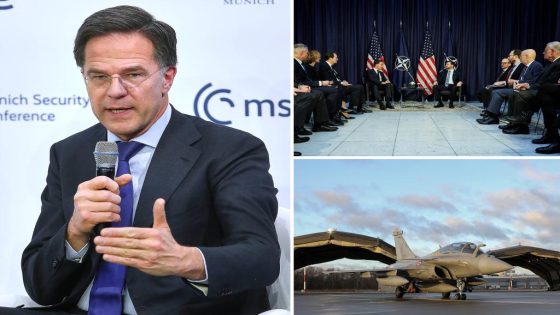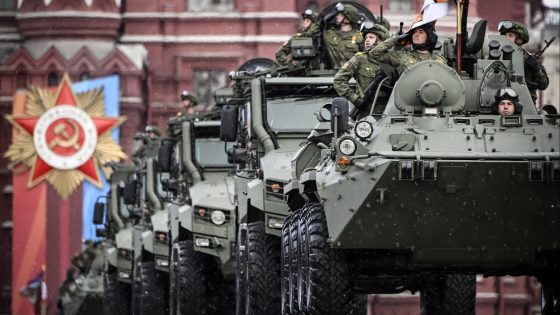NATO Secretary General Mark Rutte announced on February 16, 2025, that member nations will need to increase their defense spending to “considerably more than 3%” of their GDP. This statement was made during a panel at the Munich Security Conference, highlighting the alliance’s urgent need for higher defense budgets amid ongoing security challenges.
- NATO members must increase defense spending significantly
- Mark Rutte suggests spending over 3% GDP
- Defense Secretary calls for 5% GDP target
- Current 2% target remains unmet by members
- June summit to finalize new spending goals
- U.S. commitment to NATO emphasized by Rutte
The call for increased defense spending comes in the context of NATO’s ongoing discussions about the security landscape in Europe. Rutte emphasized that members must prioritize defense budgets over other expenditures, such as social welfare programs, to meet the new targets. This shift is deemed necessary as NATO seeks to enhance its collective defense capabilities in response to emerging threats.
Currently, NATO members are expected to meet a defense spending target of 2% of GDP, a goal that has not been achieved by any member state since its establishment over a decade ago. The proposed increase to 5% represents a significant escalation in financial commitment. Key points include:
- Rutte’s statement on spending exceeding 3% of GDP.
- Defense Secretary Hegseth’s call for a minimum of 5%.
- NATO’s June summit in The Hague to finalize new spending objectives.
Rutte also reassured members of the united states‘ commitment to NATO, despite recent criticisms regarding European reliance on American military support. He noted that the U.S. accounts for 50% of NATO’s GDP, underscoring its pivotal role within the alliance. Rutte urged members to engage constructively in discussions about defense spending rather than merely expressing grievances.
In summary, NATO’s Secretary General has called for substantial increases in defense spending among member states, reflecting a growing urgency to address security threats. The upcoming summit in June will be critical in determining the future financial commitments of NATO countries.
































